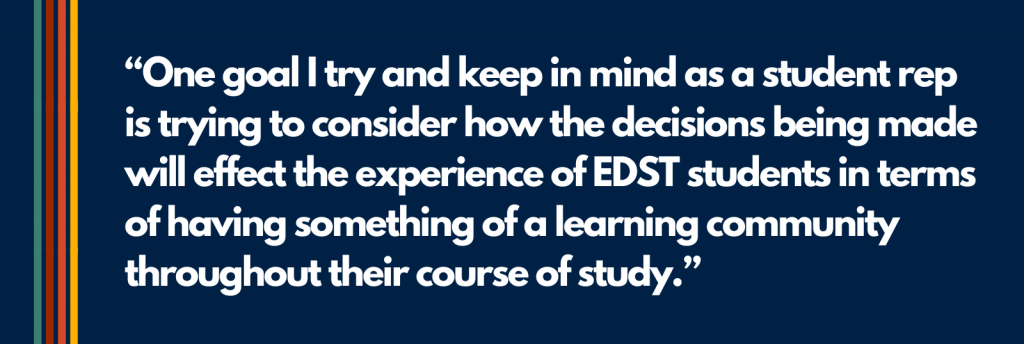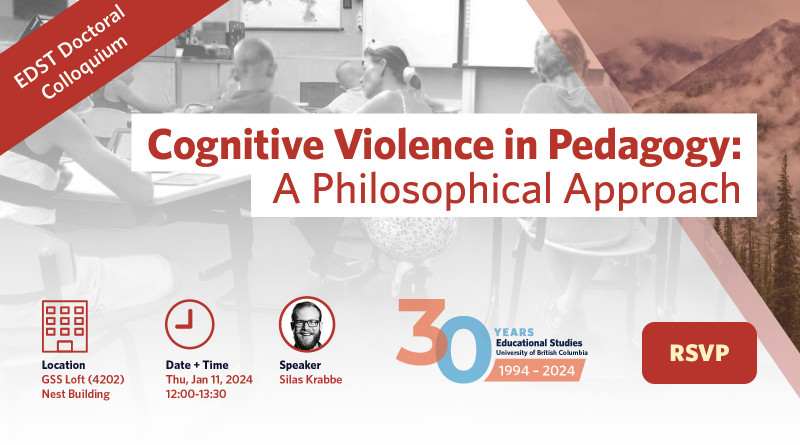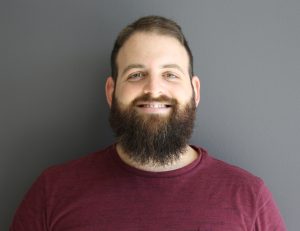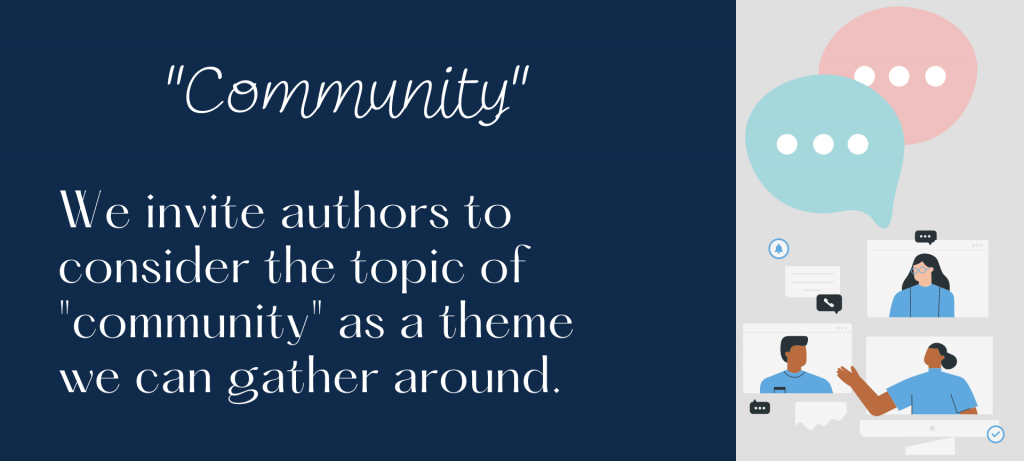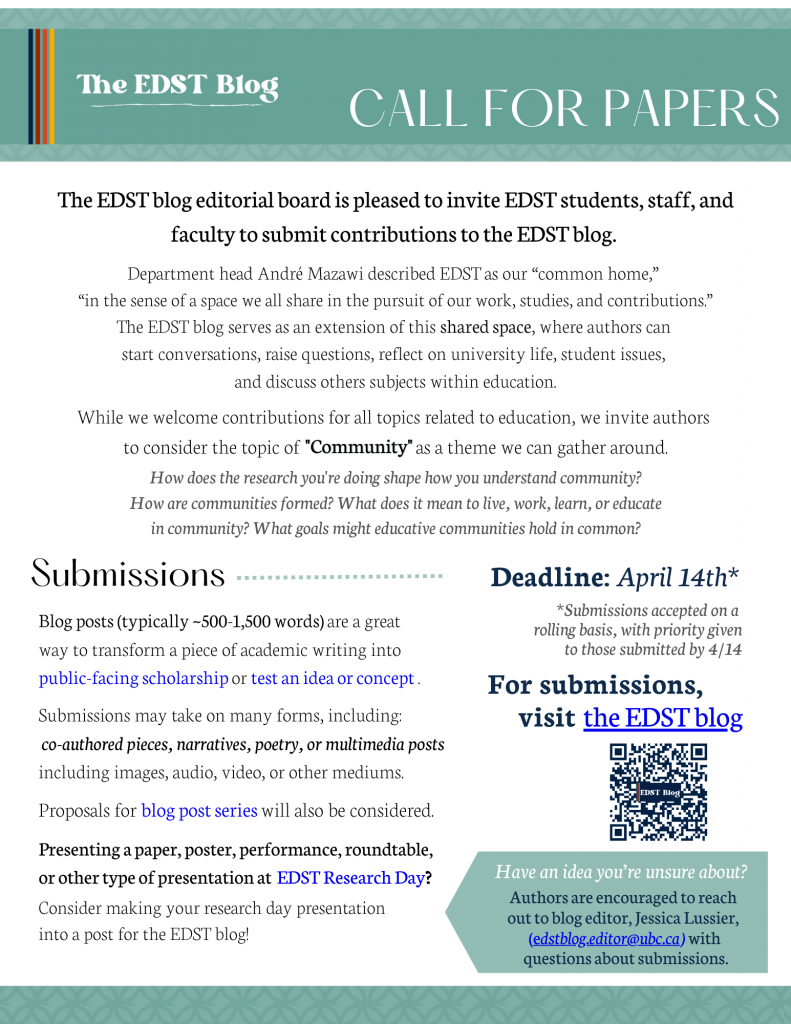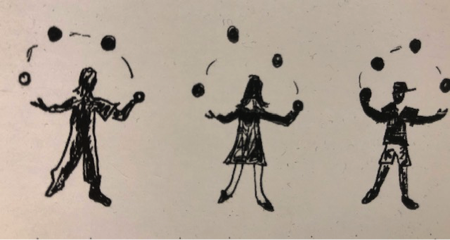This post is the second in a series of interviews with EDST student representatives.
The first post featured an interview with Silas Krabbe, GAA representative on GPACC.

Today I am thrilled to introduce Aneet Kahlon (she/her/hers), a MA student and student representative in EDST. Aneet graciously took the time to share insights into her academic journey, research interests, and experiences within EDST.
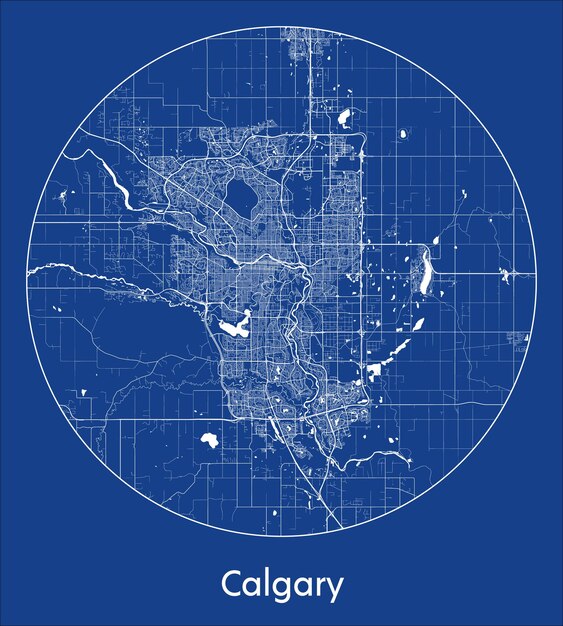
From Science to SCPE
Aneet’s background before coming to EDST was in science learning. Coming from Calgary, AB Aneet earned her Biological Sciences degree at the University of Calgary, as well as a Bachelor of Education from the University of Alberta.
Originally wanting to come to UBC to study Marine Biology straight out high school, Aneet instead joined the Educational Studies department in fall 2022.
Finding Her Niche: SCPE and Anti-Racism
In her pursuit of a Masters degree, Aneet found EDST’s SCPE (Society, Culture and Politics in Education) a wonderful fit, focusing on anti-racism and educational policy. Much of her previous university experiences were large, lecture-format classes, so she has really enjoyed the switch to smaller classes and the ability to talk about and engage in coursework with others.
Getting Involved as a Student Representative
Aneet is currently the student representative on the Scholarships and Awards Committee. While she hasn’t had the chance to meet with the committee this year, she is no stranger to volunteering in the department. Last year she was a SCPE student representative, and found it was a great way to meet people in EDST and get to know more about the inner-workings of the program.

Aneet shared her motivation for joining committees as a student representative, in that she aims to expand her involvement beyond classroom learning, emphasizing the importance of understanding the program’s decision-making processes.
Life Beyond EDST
When asked about hobbies, Aneet shared that she is learning to draw. In addition to taking drawing lessons, Aneet also enjoys doing other arts and crafts like embroidery, creative writing, journaling and poetry.
Aneet is hoping to incorporate her newfound passion for drawing into her thesis through the inclusion of family photos she has been drawing. She described how the process of carefully studying the small details of family photos has been a moving process which has allowed her to feel more connected to her grandparents and family memories. She credits one of her supervisors, Hartej Gill, for encouraging her to integrate creative outlets into her thesis, as she had incorporated creative writing into her own dissertation.
Around Vancouver
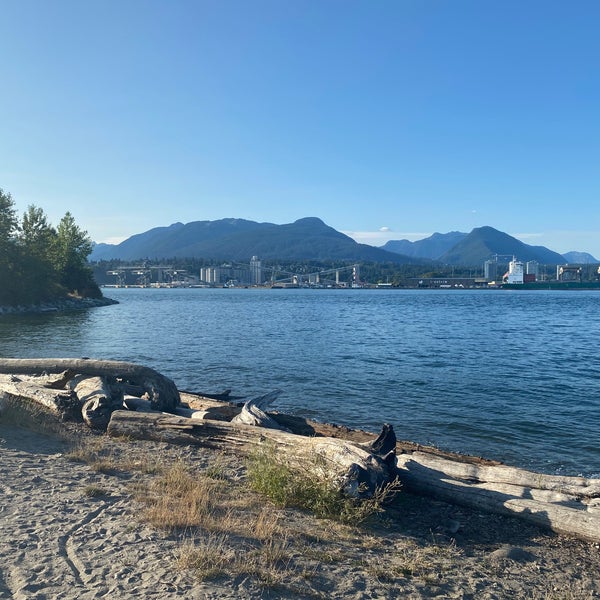
When asked about her favorite spots around Vancouver, Aneet shared that one of her favorite peaceful getaways is New Brighton Beach near Powell Street.
Another favorite spot is Main Street, particularly Caffe Artigiano. She might often be spotted browsing at a nearby bookstore before settling in to study at Caffe Artigiano with one of their delicious oat milk chai lattes. Aneet also enjoys immersing herself in Vancouver’s live music scene and appreciates the diverse range of local artists and the vibrant energy of the music scene.
Aneet’s Research and Experience with EDST
Aneet’s primary focus is on education policy research, specifically delving into anti-racism policy through an anti-colonial lens. Her thesis, titled “Anti-Colonial Content Analysis of Surrey School District’s Racial Equity Strategic Plan,” will examine how policy production impacts students, teachers, and communities. Her research is driven by a desire to challenge the status quo and advocate for anti-colonialism in education, aiming to create inclusive spaces where diverse voices are valued and heard.
As Aneet reflects on her journey, she’s grateful for the supportive community and the diverse perspectives she’s encountered in her time with EDST.
Thanks to Aneet for sharing her story!
This blog post was the second in a series of interviews with EDST student representatives. Click here to learn more about EDST’s committees and opportunities to get involved.
Are you a student representative interested in being featured on the EDST blog? Click here to reach out to our blog editor, Jessica Lussier.



 Share
Share

